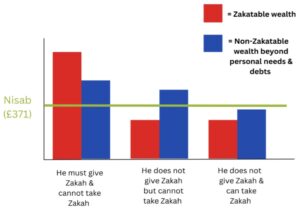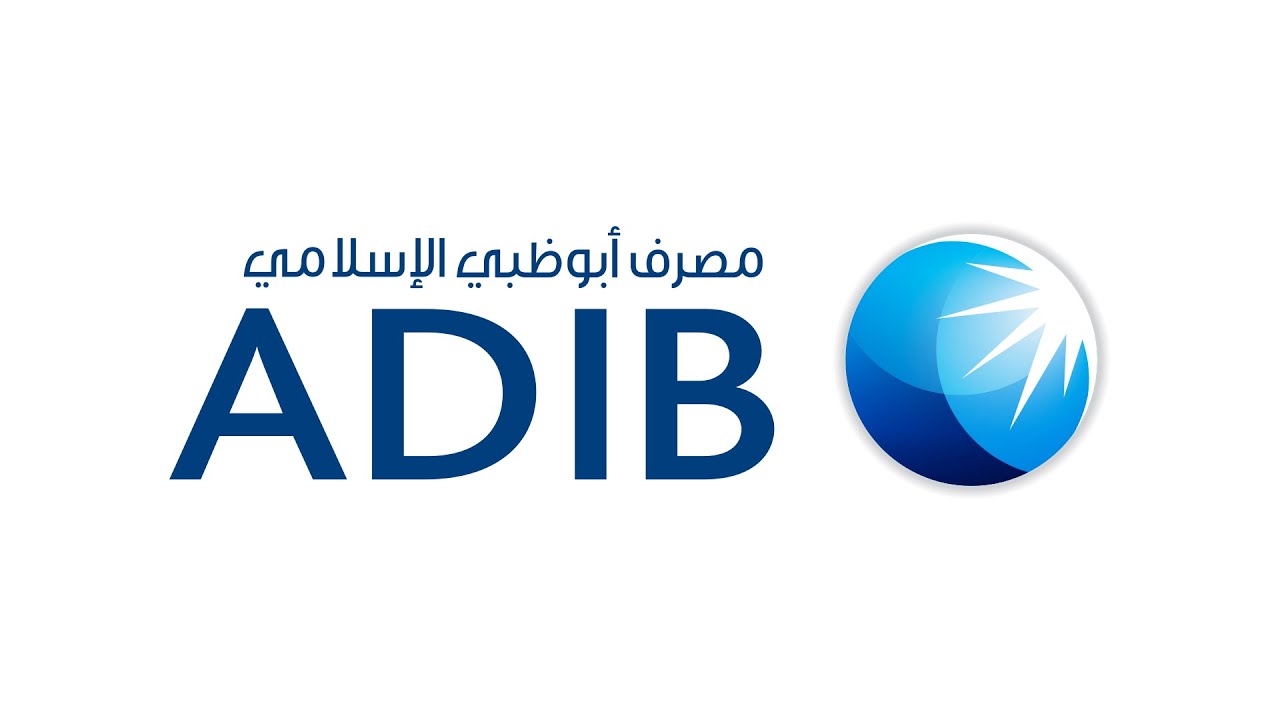
Can I give Zakāh to someone who is in debt and How do I decide if they are a worthy recepient?
Question: Who can Zakāh be given to and how

Question:
There is an Islamic bank called ADIB which offers financial rewards in savings accounts based on ‘profits and losses. They claim to be fully sharia compliant and work on the basis that any money ‘invested’ will incur profits and losses, rather than just profits. Is this permissible or simply a loophole for interest? Consider the terms and conditions below:
Answer:
In the Name of Allah, the Most Gracious, the Most Merciful.
As-salāmu ‘alaykum wa-raḥmatullāhi wa-barakātuh.
Abu Dhabi Islamic Banking (ADIB)’s system:
ADIB Ghina Account is a Saving Investment Account as defined in the BSA (general terms and conditions for accounts and Islamic Banking Services).[1]
The Ghina Account is based on the Islamic muḍārabah principles[2], wherein the account holder (rab-al-māl) deposits money for savings and ADIB (muḍārib) will invest that in the common pool of Abu Dhabi Islamic Bank PJSC (“ADIB”) in accordance with the principles of Sharī’ah, as stipulated in the provisions of the BSA. The Account Holder shall share profits and bear losses (if any).
Mufti Taqi mentions the difference between savings account in conventional banks and in Islamic banks[3]. In conventional banks, the money deposited for savings is an interest-based loan to the bank whereas in Islamic banks, the money deposited is on the basis of partnership of muḍārabah. The account holder is the investor (rab-al-māl), the money deposited is the capital (ra’s-al-māl) and the bank is the muḍārib. Profits and loss are shared between the two and no capital protection is guaranteed by the bank as the capital deposited is in the ruling of trust[4] (amānah) to the bank, unless any excess or negligence is found from the bank’s side (in which case they will be responsible according to the excess or negligence).
Examples of prize system in ADIB:[5]
7.1.1 The Account Holder who opens a Ghina Account and funds it at the same day of the account opening with a minimum balance of AED 20,000 or its equivalent in US Dollars/GBP, shall be eligible for one welcome raffle coupon for the Grand Draw.
7.2.1 The Account Holder shall be eligible to receive one Platinum raffle coupon for each full Calendar month he/she maintains a minimum daily closed balance of AED 20,000 or its equivalent in US Dollars/GBP, at the date of calculating the raffle coupons.
7.2.2 The Account Holder shall be eligible to receive one Gold raffle coupon for each full calendar month he/she maintains a minimum daily closed balance of AED 1000 or its equivalent in US Dollars/GBP, on the date of calculating the raffle coupons.
3.6 A minimum balance of AED 20,000 is required to be maintained in Ghina Account or its equivalent in US Dollars/GBP, on the date of calculating the raffle coupons, to include the Account Holder for the Grand draw.
7.2.3 The Account Holder shall have a chance to win the prize every month.
There are a total of 46 prizes every month. 1 winner of the grand prize of 1 million AED, 10 winners of 10,000 AED, 10 winners of 5,000 AED and 25 winners of 2,000 AED. The winners will be decided randomly by an automated prize draw system in the presence of a representative from the Ministry of Economy of the Emirate or as required by the rules and regulations of the said Emirate.
ADIB’S prize system, is it permissible?
“These prizes are not an essential condition of the Ghina Account… and awarding such prizes shall not be construed as an obligation on ADIB”.[6]
In Sharī’ah, ribā (interest) refers to any excess in wealth or benefit which is conditioned in the business transaction and is not in lieu of anything.[7] Whereas hibah (gift) refers to voluntary, unconditional transfer of property or assets from one person to the other with no expectation of remuneration.[8] It is clear that the prize system of ADIB falls under the category of hibah as the prizes are not a condition of the transaction and nor are ADIB obliged to award such prizes.
Mufti Taqi discusses the different types of reward systems in his Buḥūth fī Qaḍāyā Fiqhiyyah Muʿāṣarah[9]. One of the types is:
الجوائز على حسابات الاستثمار فى البنك الإسلامية
Rewards in investment accounts in Islamic Banks
Such accounts are based of partnership and muḍārabah. Mufti Taqi further discusses; if banks (such as ADIB) announce prizes for account holders, is it permissible? Two aspects to consider here: 1) does it lead to gambling (qimār)? And 2) does it lead to ribā?
In regard to the first aspect, the prize system does not lead to gambling (qimār) as money is presented for investment in the transaction of muḍārabah and not for the prize, where it is possible to win or not win the prize. Regarding the second aspect, such prizes do not lead to ribā with the condition that prizes do not guarantee the capital of the muḍārabah. This means the investor’s capital should not be guaranteed against loss. If the business incurs a loss, the investor must bear that loss, and it is not incumbent on the muḍārib to repay the capital. Although some of ADIB’s prizes are more than the capital,[10] however they do not guarantee protection against capital loss as there is no guarantee whether one will win the prize or not.
Under the topic of prize bonds, Mufti Taqi rejects the allowing of a raffle taking place amongst a group of people who have given a loan to the government.[11] The reason for disallowing is that the government are obligated to carry out this raffle to the lenders, such that they have the right to force the raffle if it does not take place. If it is explicitly stated prior that there is no obligation upon the government/bank to carry out the raffle, then it will be seen as an optional gift. Such is the case in ADIB’s Ghina Account.
Are the following charges[12] made by ADIB permissible?
“3.8 The Account Holder must maintain in his/her Ghina Account a minimum daily closed balance of AED 3,000 or its equivalent in US Dollars/GBP… in case the Account Holder failed to maintain the minimum balance specified in this condition during full Calendar month, the account will be subject to a fall below fee according to the Bank’s schedule of charges.
3.10 If the Account Holder closes his/her Ghina Account within 6 months of the date of opening the account, a charge shall apply according to the Bank’s schedule of charges.”
Such charges are permissible as these charges are for the administration costs of the bank.[13] The bank issuing the card, protecting the deposits of the accountholder, maintaining a record of their account, the accountholder using their services, etc. all of these require a cost.
Summary:
ADIB and such banks who offer financial rewards in savings accounts are permissible and Shari’ah compliant due to the following reasons:
And Allāh Knows Best
(Maulana) Nizam Uddin & et al.
Checked & Approved By
(Mufti) Muadh Chati
[1] adib-ghina-account-terms-and-conditions_en.pdf
[2] المضاربة عقد يقع علي الشركة بمال من احد الجانبين ومراده الشركة فى الربح و هو يستحق بالمال من احد الجانبين و العمل من الجانب الآخر و لا مضاربة بدونهما. (البناية للإمام العيني ت855ه (57/9) دار الفكر
هي شركة بمال من جانب و عمل من جانب. و المضارب امين و بالتصرف وكيل و بالربح شريك و بالفساد اجير و بالخلاف غاصب و باشتراط كل ربح له مستقرض و باشتراطه لرب المال مستبضع و انما تصح بما تصح به الشركة. و يكون الربح بينهما مشاعًا. و حكمها انه امين بعد دفع المال اليه… و لا ضمان عليه اذا فسدت بالهلاك بغير صنعه. البحر الرائق لابن نجيم الحنفي ت970ه (448-449/7) دار الكتب العلمية
[3] عام بینکوں کے سیونگ اکاؤنٹس میں رکھوائی جانے والی رقوم قرض ہوتی ہیں جو سودی منافع کی بنیاد پر رکھوائی جاتی ہیں، لیکن اسلامی بینک میں شرکت کی بنیاد پر لیتے ہیں کہ اگر منافع ہو گا تو وہ بینک کے ساتھ منافع میں شریک ہوں گے ۔ لہذا یہ رقم اسلامی بینکوں میں قرض نہیں ہوتی۔ بلکہ عقد مضاربت کا راس المال ہوتی ہے، اور رقم رکھوانے والا شخص بینک کے منافع میں ایک متناسب حصہ کا مستحق ہوتا ہے۔ اور اگر نقصان ہو جائے تو اس وقت نقصان میں بھی شریک ہوتا ہے، اور وہ رقم بینک پر مضمون نہیں ہوتی۔ لہذا بینک نہ تو اصل رأس المال کا ضامن ہوتا ہے اور نہ ہی منافع کا ضامن ہوتا ہے۔ البتہ اگر بینک کی طرف سے تعدی اور زیادتی پائی جائے تو اس صورت میں بینک تعدی اور زیادتی کے بقدر ضامن ہو گا- فقہی مقالات (40/3) میمن اسلامک پبلشرز
[4] و المضارب امين… و لا ضمان عليه اذا فسدت بالهلاك بغير صنعه. البحر الرائق لابن نجيم الحنفي ت970ه (448-449/7) دار الكتب العلمية
عقد شركة فى الربح بمال من جانب و عمل من جانب، و ركنها الإيجاب و القبول و حكمها ايداع ابتداءً (الدر المختار). (قوله ايداع ابتداءً) فالمراد فى حكم عدم الضمان بالهلاك و فى احكامٍ مخصوصةٍ لا فى كل حكم فتأمل. رد المحتار لابن عابدين الشامي ت1252ه (645/5) سعيد
[5] adib-ghina-account-terms-and-conditions_en.pdf
[6] adib-ghina-account-terms-and-conditions_en.pdf
[7] (فضل مالٍ بلا عوضٍ فى معاوضة مالٍ بمالٍ) و قيد بالمعاوضة لان الفضل الخالي عن العوض الذى فى الهبة ليس بربا. و ترك المصنف قيدا لا بد منه و هو ان يكون الفضل الخالي مشروطًا فى العقد لاحد المتعاقدين. البحر الرائق لابن نجيم الحنفي ت970ه (207-208/6) دار الكتب العلمية
و كذا فى حاشية الطحطاوي على الدر المختار: ٣/١٠٧، مكتبة رشيدية
والمبسوط للامام السرخسي ت490ھ (128/12) دار الكتب العلمية
قوله كلُّ قَرْضٍ جَرَّ نفعاً حرامٌ أي: إذا كان مشروطاً رد المحتار لابن عابدين الشامي ت1252ه (212/15) دار الثقافة و التراث
[8]و فى تعريف الهبة :تمليك العين بلا عوض أي: بلا شَرْطِ عِوضٍ رد المحتار لابن عابدين الشامي ت1252ه (382/18) دار الثقافة و التراث
[9] أما حسابات الاستثمار في البنوك الإسلامية، فليست قروضاً، وإنما هي أموال قدمها أصحابها على أساس الشركة أو المضاربة؛ فهل يجوز إعطاء الجوائز أو أخذها إن أعلنت لأصحاب هذه الحسابات؟ فإنه يجب للإجابة عن هذا السؤال أن نتأكد من ناحيتين : الأولى: هل تؤدي هذه الجوائز إلى القمار؟ والثانية: هل تؤدي إلى الربا؟ أما الناحية الأولى: لا تؤدي هذه الجوائز إلى القمار؛ وذلك لأن أصحاب حسابات الاستثمار لا يقدمون أموالهم إلى البنك للوقوع في المخاطرة في الجوائز، وإنما يقدمونها لعقود الشركة أو المضاربة، وإن نتائج هذه الشركة أو المضاربة لا تتأثر بحصول الجوائز أو عدمه ؛ فلو لم تحصل لهم الجوائز، لا تضيع أموالهم بهذا السبب، وإنما يربحون فيها أو يخسرون بطبيعة الشركة أو المضاربة، فصارت هذه الجوائز من هذه الناحية مشابهة للجوائز التي تعطى على شراء المنتجات، فهي تبرع محض من قبل البنوك لا يقابله شيء، فلا تدخل في القمار. وأما الناحية الثانية: وهي أنها هل يلزم منها الربا؟ و الظاهر أنها لا تدخل فى الربا بشرط ان لا تئدى الى ضمان رأس المال او جزء يعتد به منه او الربح فى الشركة او المضاربة. و ذلك انما يكون ان بلغت قيمة الجوائز مقدار رأس المال… او زاد عليه، فحيث يئدى ذلك الى ضمان رأس المال. بحوث فى قضايا فقهية معاصرة للمفتي محمد تقي عثماني (162-164/2) باب احكام الجوائز
[10]adib-ghina-account-terms-and-conditions_en.pdf Such as the grand prize of 1 million AED
[11] … فلأن الحكومة تلتزم بتوزيع الجوائز على حملة السند، فالزيادة على مبلغ القرض وإن لم تكن مشروطة لكل واحد من المقرضين، فإنها مشروطة تجاه مجموعة المقرضين، لأن الحكومة تلتزم علناً عند إصدار السندات أنها توزع هذه الجوائز، وإن التوزيع مفروض عليها بحكم القانون، بحيث إن امتنعت من توزيعها، استحق كل حامل للسند أن يطالبها بتوزيع الجوائز قانوناً.
فقه البيوع للمفتي محمد تقي عثماني (356/1)، مكتبة معارف القرآن
[12] adib-ghina-account-terms-and-conditions_en.pdf
[13] بعض لوگ کہتے ہیں کہ سالانہ فیس سود ہے لیکن یہ سود نہیں ہے بلکہ در حقیقت اس نے جو کارڈ آپ کو ایشو کیا ہے، اس کی اپنی بھی کچھ قیمت ہوتی ہے، پھر اس کو بھیجنے کی، پھر ہر مہینہ حساب و کتاب رکھنے کی ہر مہینہ آپ کو بل بھیجنے کی اور آپ کے تاجر سے رابطہ رکھنے کی، یہ ساری اجرتیں ہیں اور یہ اجر مثل ہے، سالانہ فیس سود کے زمرے میں نہیں آتی۔ اسلام اور جدید معاشی مسائل (151/4) ادارۃ الاسلامیات پبلشرز

Question: Who can Zakāh be given to and how

Question: Someone is visiting London (from another country) for

Question: If a woman gets her period at the

Question: Are WHOOP bands permissible in Ihraam? Answer: In

Question: I ordered some magnesium gummies, I checked the

Download the pdf here: Question: What is the ruling